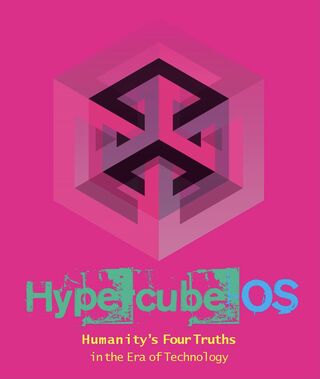Wisdom
Humanity’s 4 Foundations in the Era of Technology
The wisdom of Aristotle may be our best path forward.
Posted March 13, 2021 Reviewed by Jessica Schrader

How do we make sense of it all?
How do we begin to understand the complexities of, well ... complexity itself? Technology offers humanity a path forward, but the bumps, curves, and detours make the journey one of both wonder and fear. It seems that the guideposts of today’s technology and innovations are more a function of this contemporary reality than one anchored in the fundamental human truths and transcend the electron to offer a perspective of flesh, blood, and dare I say, soul.
Sometimes, the best way to look forward is to look back. Our history of thinkers, rebels, and philosophers can offer the “first principles” of humanity and provide a template for reflection and analysis. In his book If Aristotle Ran General Motors, Tom Morris takes a fascinating and critical look at modern business and how fundamental insights from varied philosophical traditions can provide the guideposts for business and humanity. Published over 20 years ago, Morris’ wisdom can be applied to how technology impacts all our lives and provides a strategic framework that can ground our contemporary reality in a timeless perspective.
Let’s take a step back—a philosophical step back to Aristotle’s world. Grounding his (and our) reality are four foundational concepts that frame our experience: truth, beauty, goodness, and unity. From ancient Greek times to the modern world, these pillars have been the foundations of human experience. These four dimensions—a philosophical hypercube—create our human reality and establish a moral compass, that today more than ever, is an essential tool for interpreting our reality and navigating our path forward. Perhaps, it’s this ancient wisdom that can provide a modern-day rubric or even an operating system that helps us establish the “right and wrong” to technology’s advancement, intrusion into, and transformation of our lives.
Truth: the first of first principles
In today’s world, truth is often a perceptual reality driven by influence, groupthink, and search engine algorithms. It sometimes feels as truth has emerged as more a point of view than a basic and fundamental reality. While truth represents the cornerstone of various aspects of society—from relationships to governments—this very foundation is under stress from technology’s ability to reproduce or even “fake” a reality that cannot be discerned from the original. Our senses no longer provide a safe haven for reality but are subject to technological victimization. Yet, truth is the clarion call that can stand counterpoint to the contrivances of technology.
Beauty: our expanded esthetics and the emergence of the user experience.
Beauty is in the eye of the beholder. Yet today’s technological influences can project a reality where beauty can extend into the very process of viewing—the user experience. Augmented, virtual, and mixed reality will become the new artist’s brush to translate a conventional sense of beauty into a multidimensional sensory experience. Technology can become a new architecture of the mind that can craft much of what we can conceive. Pushing on the bounds of our senses, technology can open a grand vista of experience that redefines our human world and, in the final analysis, places us in a more rich reality that can make us even more human.
Goodness: technology shaping perspective and opinion.
Technology feeds both our hearts and minds. As we seek wisdom and guiding principles to help, tech—commonly, in the form of Google—plays a tremendous role in shaping our sense of right and wrong. From politics to personality, today’s tech oracles are spewing a precarious collection of algorithms, data, and perspective. What’s right is now reinterpreted by what possible. And outcomes are freely accepted as another permutation of reality that fits the fashion of the times. Further, vague influencers who manage these processes are hidden behind corporate walls and have little or no accountability. The moral path forward must be the defining element that drives technology forward, not the other way around.
Unity: Connectivity and the democratizing of everything.
Technology is making the world smaller and bringing individuals closer together. Human connectivity is growing, and a new collective reality is being established. From the ancient “thou art that” to the contemporary idea of crowdsourcing, these connections drive art, wisdom, commerce, and even a new human understanding around politics and world peace. Our collective engagement results in a democratization of data, ideas and the very social structure that can exercise power in the interest of all.
Over 2,000 years ago, Aristotle and other great philosophers defined first principles as the basis from which a thing can be understood or known. Today, we use a similar framework to analyze and solve our problems. As we break down complicated issues, we establish the ability to deconstruct problems to the core ideas that allow us to both comprehend and solve what was once almost an insurmountable combination of abstract ideas. First principles allows a method to unravel life itself and establish a basis to understand, live, and enjoy our own lives. Truth, beauty, goodness, and unity are the very building blocks of our humanity. And as technology becomes our collaborative partner, we need to look to these four human dimensions as our timeless benchmarks that help us define the path forward.


